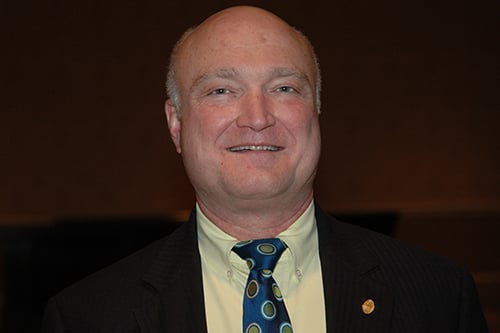Leading advocate for emergency medicine, David E. Wilcox, establishes research award at UMass Chan
Date Posted: Monday, August 19, 2024 A longtime leader in emergency medicine, David E. Wilcox, MD, FACEP, is funding a new award that will support research in the specialty at UMass Chan Medical School, where he was a valued faculty member for more than 15 years.
A longtime leader in emergency medicine, David E. Wilcox, MD, FACEP, is funding a new award that will support research in the specialty at UMass Chan Medical School, where he was a valued faculty member for more than 15 years.
Dr. Wilcox was recruited to UMass Chan in 1983 by the late Richard V. Aghababian, MD, founding chair of the Department of Emergency Medicine, to direct New England’s first hospital-based air ambulance, Life Flight—a game changer for emergency care in the region.
Emergency medicine had received recognition as the 23rd specialty by the American Medical Association and the American Board of Medical Specialties just a few years prior, in 1979.
“It was a different era back then,” Dr. Wilcox said. “We didn’t have CT scans and a lot of today’s technology. Instead, we relied largely on gestalt [historical facts and physical exams] to make clinical decisions.”
Fast forward 40 years, and emergency medicine has come a long way, underscoring the importance of investing in innovation, for which Dr. Wilcox is a fierce advocate.
"We’re thrilled for this
opportunity to launch new,
innovative research ideas.
Dr. Wilcox helped build our
department and has long
been a tireless advocate and
leader within the field of
emergency medicine. His
generosity is inspiring."—Gregory Volturo, MD, chair
and professor of emergency
medicine and the Richard V.
Aghababian, MD’74, Chair in
Emergency Medicine
“Research defined our position within the house of medicine and continues to redefine practice,” he said.
A pioneer in the specialty, UMass Chan continues to lead in emergency medicine research. The Medical School consistently ranks among the top National Institutes of Health-funded emergency departments in the United States, standing at number seven in 2023 (Blue Ridge Institute for Medical Research).
The recent gift from Dr. Wilcox will boost this work by supporting the research efforts of medical students, residents or fellows.
“It’s important to fund early-stage projects to get people started,” he said.
The contributions of Dr. Wilcox to emergency medicine are far-reaching and include advocacy at the federal level. In the 1990s, he was actively involved in passing the Prudent Layperson Standard, which requires insurance companies to provide coverage for emergency care based on symptoms, not the final diagnosis—a watershed for patient rights.
In recognition of his leadership, UMass Chan established the David E. Wilcox, MD, FACEP, National Service Award in 2018. This year’s recipient, Gayle M. Galletta, MD, professor of emergency medicine, was selected for her successful work to advance emergency medicine as a specialty in Europe, and for delivering a message of gender equity and diversity on an international platform.
Now working as a health care consultant, Dr. Wilcox found enormous satisfaction as a practicing emergency room physician, where “it’s immediate action and immediate result.”
What are the benefits of early-stage funding? |
|---|
|
Early-stage funding can have an extraordinary impact. For instance, a $1,500 grant from the Department of Emergency Medicine’s research fund jump-started the career of Stephanie Carreiro, MD, PhD'22, associate professor of emergency medicine. Her work to develop a wearable biosensor to improve medication adherence among individuals with opioid use disorder has gone on to attract approximately $6.9 million in NIH funding, plus additional grants. |
“If a patient comes to the ER with a laceration, we suture it; with a broken bone, we set it; experiencing a heart attack, we thrombolyse them; with a traumatic injury, we resuscitate and prep them for the operating room,” Dr. Wilcox said. “And while we can’t save every patient, our overall success rate is actually very high.”
The gift to UMass Chan is part of a larger strategy to support emergency medicine through financial contributions, and while this includes estate planning, Dr. Wilcox is also eager to make an impact today.
“Why wait until I die?” he said. “I prefer to enjoy the fruits of my labor, and see what researchers are able to achieve while I’m still here.”
In doing so, he’s taking advantage of what’s known as the IRA charitable rollover, through which individuals over age 70 ½ can give any amount (up to a maximum of $105,000) from an IRA directly to a qualified charity such as UMass Chan, without having to pay income taxes on the money.
He hopes that supporting emergency medicine research, and sharing this experience, will inspire others to do the same.
“Part of my intent is to encourage colleagues to fund research,” he said. “We all had help along the way, it’s only right that we pay it forward to those who will follow.”
Planned giving
To learn more about the IRA charitable rollover and how you can include us in your estate plan, please visit our planned giving website.
